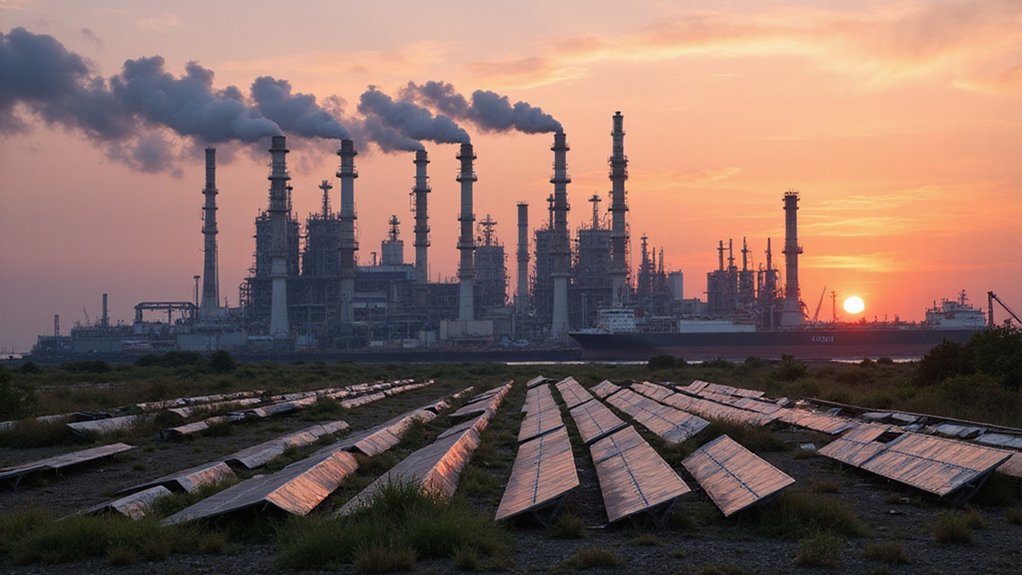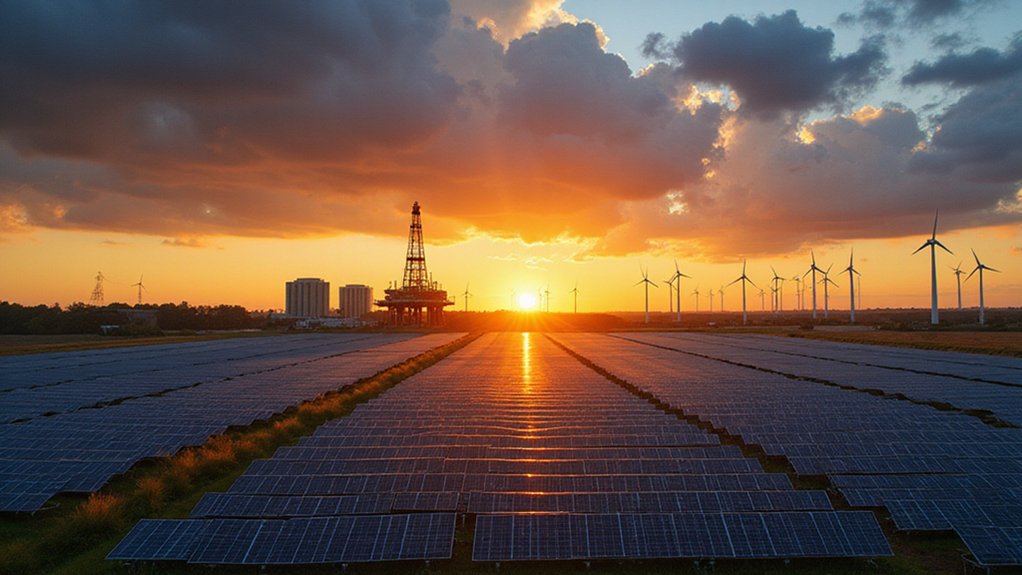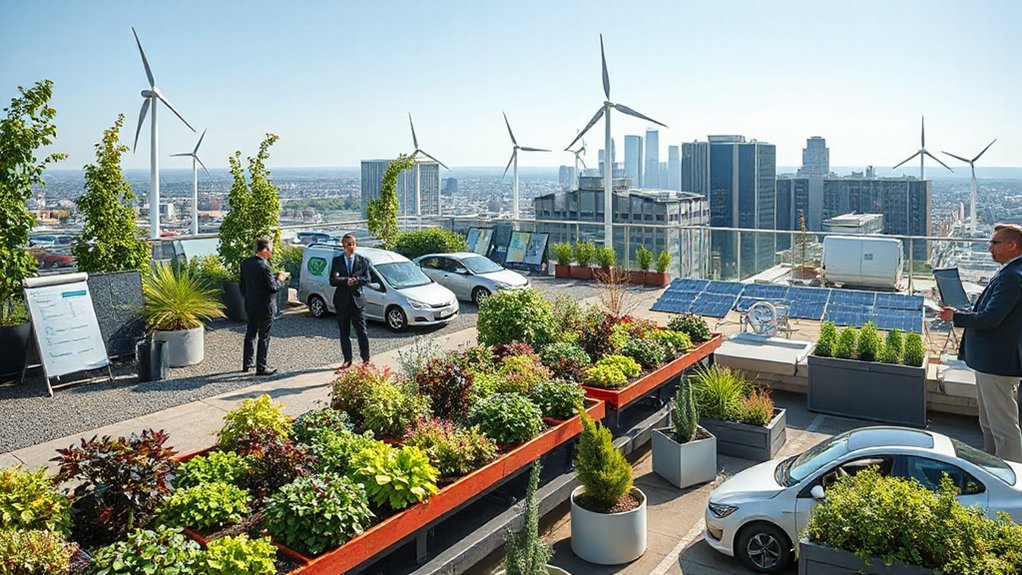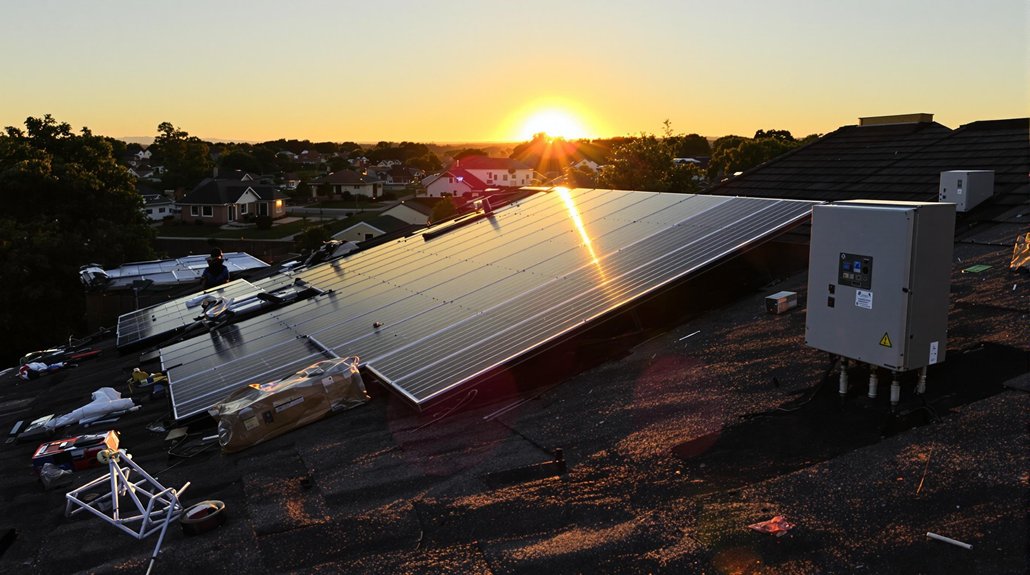As global economies push for cleaner energy, Japanese oil refiners have quietly retreated from their environmental commitments, choosing traditional profit margins over climate action.
It’s a familiar story – big promises, flashy sustainability reports, then the quiet backpedaling when quarterly numbers need a boost. These companies once stood on stages announcing ambitious carbon-neutral targets. Now? Not so much.
Corporate sustainability theater: grand promises made under spotlights, silently abandoned when profit margins tighten.
The alteration comes as Japan’s government maintains its 2050 carbon neutrality goal. But actions speak louder than press releases. Major refiners like ENEOS and Idemitsu Kosan have slowed investments in renewable projects while ramping up traditional refining operations. Money talks, right?
The numbers tell the story. Green investment portfolios have shrunk by nearly 15% since last year. Meanwhile, fossil fuel infrastructure spending has jumped. Funny how quickly “environmental leadership” evaporates when oil prices stabilize. These companies aren’t stupid – they’re just following the money.
Japan’s energy security concerns following global disruptions provided the perfect cover for this retreat. “Practical considerations” became the new buzzword. Translation: we’re sticking with what makes us rich.
The public statements cleverly frame these decisions as “strategic pauses” rather than abandonments. Nice PR spin there.
Some executives have privately acknowledged the alteration. One anonymous industry leader admitted, “Renewable margins simply don’t compete with traditional operations.” At least they’re honest behind closed doors.
Environmental groups are understandably furious. They’ve tracked the quiet cancellations of previously announced solar farms and hydrogen projects. The pattern is clear – when profits dip, sustainability gets sacrificed first.
The impact extends beyond corporate balance sheets. Japan’s emissions fell about 4% through March 2024 to a record low; however, this decline rate remains too slow to achieve meaningful climate goals. The country had positioned its refining sector as critical to its energy alteration story. That narrative has collapsed.
For consumers, it means continued dependence on imported fossil fuels. For investors who bought into green promises, it’s a harsh lesson in corporate priorities.
And for the climate? Just another example of how easily environmental commitments fold when faced with the allure of fossil fuel profits.
This shift follows the global trend where renewable stocks have plummeted to 2019 levels amid rising interest rates and supply chain challenges.
This trend contradicts actions by companies like Kansai Electric Power, which is actively decommissioning oil-fired units at its Ako power complex as part of a transition to cleaner energy sources.
References
- https://business.financialpost.com/pmn/business-pmn/a-26-year-old-asked-to-help-shape-japans-climate-goals-has-a-warning
- https://www.argusmedia.com/ja/news-and-insights/latest-market-news/2618532-japan-s-kansai-to-scrap-ako-oil-fired-units-in-2025
- https://www.marubeni.com/en/news/2025/release/00021.html
- https://www.environmental-finance.com/content/awards/environmental-finances-sustainable-debt-awards-2025/corporate-statements/supporting-japans-transition.html
- https://www.orrick.com/en/insights/2025/02/japan-renewables-alert-69









